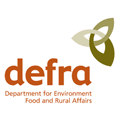Business
Hotter summers and milder winters
The heatwave in 2003 killed about 2,000 people in the UK. The frequency of hotter summers is expected to become more common. Increasing temperatures have also softened road surfaces and disrupted travel connections.
In Yorkshire and Humber it is anticipated that the summer average temperature will increase by about 1.3ºC by the 2020s. In urban areas hotter summers may be a particular issue due to the urban heat island effect. Buildings and other developments which retain heat can add several degrees to the temperature in built up areas. For your business, this could affect working conditions for staff and cause equipment to overheat. Increased temperatures could also affect agriculture by changing the growing season and the types of crops that can be grown. It may also change the nature of pests and diseases.
For Yorkshire and Humber it is estimated that the average winter temperature may increase by 1.3ºC by the 2020s. Milder winters may bring some benefits, but cold spells will still occur.
Related Links
You may have found us by using the following keywords: Our Climate, Climate Change Partnership, Climate Change, Regional, Adaptation Sub-Group, Adaptation, Local Authorities, Strategy and Monitoring, Built Environment, Transport, Health Services, Business, Land Management, Citizen Engagement, Energy, Waste, Water, Carbon, Flood risk, Mitigation, Leadership, Low Carbon Products, Low Carbon Services, Zero Carbon, Integrated Regional Strategy, Yorkshire and Humber Strategy, Climate Change Act, Regional Adaptation Study, Climate Change Plan for Yorkshire and Humber, Climate UK, Regional Coordinator, Low Carbon Economy, Bio-mass, Carbon Capture, Microgeneration, Local Area Climate Change Network, YoHr Space, Climate Change Board, Impacts, Vulnerability, Opportunities, CO2, NI188, NI186, NI185, NI187, Temperature, Rainfall, Extreme weather






